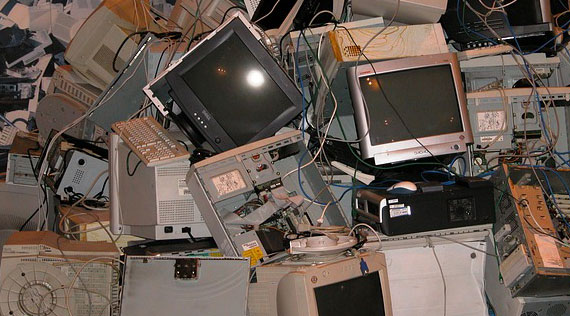
MELBOURNE (Scrap Monster): Researchers at the University of New South Wales (UNSW) has stated that the nation’s e-waste laws needs to be strengthened to better handle rising e-waste volumes in the country. The comparative study undertaken by researchers at the university revealed that Australia’s e-waste laws were ineffective when compared with Japan and Switzerland. According to the report, Australia’s e-waste laws need a thorough ramp-up so as to prevent hazardous waste from ending up in landfills. The study noticed that Australia is one of the countries with poor e-waste management policies in place. E-waste management in the country lags behind international standards and is based on outdated recycling targets, it added.
According to Professor Graciela Metternicht from UNSW’s School of Biological, Earth and Environmental Sciences, the country’s legislation is incompetent to keep pace with the e-waste volumes currently generated by the country. The latest worldwide study indicates that Australia is the second largest e-waste producer per person in the world. Metternicht also recommends revision of country’s recycling targets at the earliest as the current targets reflect the situation that existed almost 10 years back and look outdated.
The study report defines electronic or electrical waste as any device that are connected to a power source. This includes a wide range of equipment including refrigerators, micro-waves, computers, laptops, printers, televisions, mobile devices etc. If not disposed properly, these devices could result in emission of toxic substances such as lead, arsenic and mercury into the environment, thereby causing severe harm to living beings. Recycling of used devices will help in recovering valuable metals from various components. The higher cost of recycling used electronics often lead to illegal shipment of these waste to other countries, where they are handled using unhealthy and unlawful means.
The UNSW research noted that introduction of e-waste laws have helped to give big boost to overall recycling rates in the country. However, the country’s e-waste legislations including the National Waste Policy 2009 and the National Television and Computer Recycling Scheme 2011 have serious flaws which need to be addressed immediately. The report includes key recommendations based on the survey conducted among various stakeholders and recycling experts.
Firstly, the e-waste laws must provide clear definition for the roles to be played by various stakeholders including consumers, retailers and local administration. In addition, the scope of nation’s e-waste law must be expanded by incorporating new categories of e-waste, which in turn could reduce public confusion with regards to what all items comes under the classification of e-waste. Local governments must provide adequate recycling awareness education to residents and implement necessary action to increase the residents’ accessibility to recycling depots or drop-off sites.
More importantly, the country needs to rework with its recycling targets. Also, auditing and compliance mechanism needs to be enhanced so as to ensure that set targets are achieved within the specified timeframe.
The University of New South Wales is an Australian public research university located in the suburb of Kensington in Sydney. Established in 1949, it is regarded as one of the country's leading universities.
| Copper Scrap View All | |
| Alternator | 0.32 (0.01) |
| #1 Copper Bare Bright | 3.77 (0.07) |
| Aluminum Scrap View All | |
| 356 Aluminum Wheels (Clean) | 0.73 (0.02) |
| 6061 Extrusions | 0.64 (0.02) |
| Steel Scrap View All | |
| #1 Bundle | 475.00 (0) |
| #1 Busheling | 495.00 (0) |
| Electronics Scrap View All | |